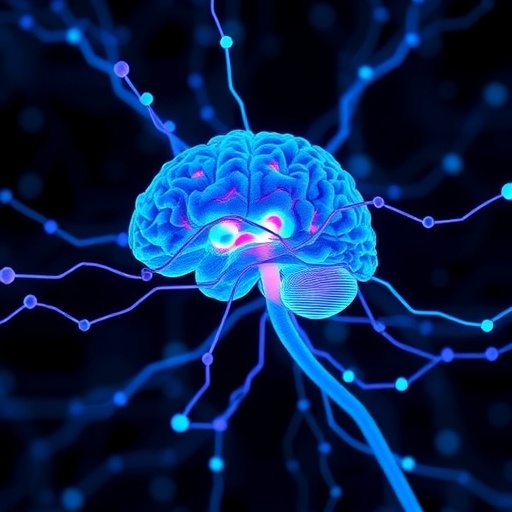In a revolutionary advancement for neurodegenerative disease research, Answer ALS has announced the full public release of its groundbreaking ALS clinical and multi-omics dataset. This milestone represents the completion of a multi-year collaborative effort with the ALS Therapy Development Institute (ALS TDI), integrating data from over 1,100 thoroughly characterized individuals from Answer ALS alongside the rich longitudinal data from the ALS TDI’s ALS Research Collaborative (ARC) program. The unification of these datasets on a sophisticated cloud-based platform, the Neuromine Data Portal, empowers scientists globally to explore a harmonized collection of more than 150 terabytes of multi-dimensional data encompassing over 2,500 ALS patient profiles. This convergence marks an unparalleled resource, designed to accelerate mechanistic understanding and therapeutic discovery in amyotrophic lateral sclerosis (ALS).
This integrated dataset is uniquely comprehensive, assembling multiple layers of omics information from each participant, including whole-genome DNA sequencing, transcriptomic RNA expression profiles, proteomic biomarker quantification, epigenomic DNA methylation signatures, and extensive clinical phenotyping. The rigor in data processing ensures consistency and high quality across diverse biological domains, providing researchers with a rich multidimensional view of ALS pathobiology. According to Dr. Terri Thompson, Program Director of Data Management at Answer ALS, the dataset is a “living resource” continually refined and updated to maintain its scientific robustness and reliability, positioning it as the largest and most detailed ALS research dataset to date.
Central to this program’s innovation is the integration of patient-derived biospecimens and induced pluripotent stem cell (iPSC) lines linked to each dataset entry. This integrative model facilitates the translation of genomic and molecular findings into experimental systems that recapitulate patient-specific disease phenotypes. Such an approach bolsters the ability to interrogate disease mechanisms at multiple biological scales and speeds the preclinical validation of novel therapeutics. The cloud-hosted Neuromine platform serves as an accessible interface, where data scientists, molecular biologists, bioinformaticians, and clinicians can mine, visualize, and cross-reference datasets from both Answer ALS and ALS TDI’s ARC study.
The augmentation of the Neuromine repository with ALS TDI’s ARC data effectively doubles the volume of information available, adding years of clinical and biospecimen data collected from a diverse cohort over an eight-year period. Dr. Fernando G. Vieira, CEO and Chief Scientific Officer at ALS TDI, emphasizes the transformative potential of this resource, noting that the ongoing nature of the ARC program ensures continual enrichment of the dataset. This expanding trove will allow researchers to discern new molecular signatures, identify phenotypic subgroups, and formulate precision medicine strategies with unprecedented speed and scale.
Since neuromine’s inception in 2021, open access to the Answer ALS dataset has ignited a surge of research activity globally. More than 500 independent projects embarked upon utilizing this resource have led to the publication of numerous peer-reviewed studies that span fundamental biology, biomarker discovery, and early drug development efforts. Collaborative investigations have started unraveling ALS heterogeneity by uncovering distinct molecular subtypes and pathway disruptions, fostering a shift from one-size-fits-all approaches toward stratified therapeutic designs.
This latest release underscores the pivotal role of big data in ALS research. Ed Rapp, an individual living with ALS and Chair of the Answer ALS Advisory Board, passionately articulates how bridging patient-derived data with advanced analytics constitutes the “missing domino” in the search for breakthroughs. His personal involvement exemplifies the patient-centered ethos of the initiative, demonstrating how real-world evidence serves as a catalyst for discovery, offering renewed hope by transforming raw data into actionable insights.
The scope and depth of the dataset enable a systems biology perspective, permitting researchers to study ALS at the intersection of genomics, transcriptomics, proteomics, and epigenomics spatially and temporally throughout disease progression. The harmonization of clinical metadata with biological omics layers also allows for integrative modeling that can link molecular abnormalities to phenotypic manifestations, progression rates, and therapeutic responses. This layered approach is vital for unraveling ALS’s multifactorial complexity and its variable clinical presentations.
For the wider scientific community, Answer ALS will further facilitate the use of its resource through an upcoming webinar, “Mastering Neuromine: Exploring the World’s Largest Collaborative ALS Dataset,” scheduled for December 11, 2025. This session is designed to provide a deep dive into the navigation, analytical capabilities, and best practices for leveraging the Neuromine portal, democratizing access and accelerating hypothesis-driven research. Registration details are available on the official Answer ALS website.
With its headquarters in New Orleans and Washington, D.C., Answer ALS exemplifies a new paradigm of open science and data sharing in neurology. By merging the efforts of multiple institutions, leveraging cutting-edge multi-omics technologies, and fostering an open-access ethos, the consortium is reshaping the landscape of ALS research. The combined dataset serves not only as a platform for current investigations but as a foundation for future breakthroughs that may translate into effective therapies and ultimately, a cure.
The integration of Answer ALS and ALS TDI’s ARC data marks a transformative moment, setting a new standard for collaborative neurodegenerative disease research. Its scale, transparency, and continuous expansion render it a vital resource that embodies the promise of precision medicine in ALS. The scientific community and patients alike stand to benefit from this unprecedented availability of high-resolution multi-omics and clinical data, moving closer each day to unraveling the complex biology of ALS and halting its relentless progression.
Researchers and clinicians eager to tap into this resource are encouraged to engage with the Neuromine Data Portal and participate in the upcoming training opportunities to maximize the dataset’s potential. As discoveries emerge from this rich wellspring of data, the global effort to defeat ALS will be propelled forward, harnessing the power of big data, integrative biology, and collaborative innovation.
Subject of Research: Amyotrophic Lateral Sclerosis (ALS) Multi-omics and Clinical Data Integration
Article Title: Answer ALS and ALS TDI Unite Multi-Omics Data on Cloud Platform to Accelerate ALS Discovery
News Publication Date: November 3, 2025
Web References:
Keywords: Amyotrophic lateral sclerosis, ALS, Neurological disorders, Multi-omics, Genomics, Transcriptomics, Proteomics, Epigenomics, Clinical dataset, Disease subtypes, Biomarkers, Data sharing, Precision medicine




